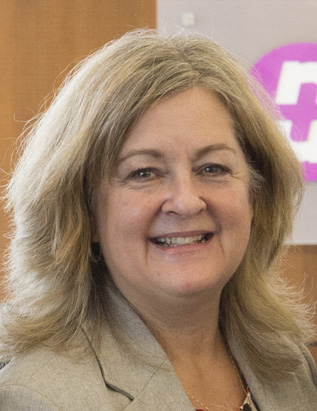Conference Co-Chairs
Conference Advisory Committee
Laura Track
Human Rights Clinic Director and Director of Public Legal Education
Community Legal Assistance Society
Monday, March 27, 2023
Breakfast and Registration 8:00 AM – 9:00 AM PST
Introductory remarks by Co-Chairs 9:00 AM – 9:10 AM PST
Difficult Accommodations: Responding to denial, defensiveness, and personality disorders

Megan Ashbury
Arbitrator, Mediator and Workplace Investigator

Dr. Izabela Schultz
Cortex Centre for Advanced Assessment

Melissa VanderHouwen
Union Cousel
Moore Edgar Lyster LLP

Veronica Ukrainetz
Employer Counsel
Ukrainetz Workplace Law Group
Accommodating an employee with a disability can become difficult when the employee’s disability affects the employee’s judgment, perceptions, and ability to cooperate. Unfortunately, mental health disabilities, including mood disorders, can often affect precisely those faculties that they require to participate in the accommodation process. Accommodating neurodivergent employees can also prove difficult to employer and union representatives unaccustomed to the differences in communication and social behaviour characteristic of autism spectrum disorders.
Working through interactive exercises and realistic scenarios with the guidance of experts, participants will develop the knowledge and skills necessary to:
Appreciate how common disabilities may affect a worker’s ability to participate in the accommodation process
Communicate effectively with defensive workers and those in denial
Fulfil union and management legal obligations when workers are unwilling or unable to participate in the accommodation process
Identify when the point of undue hardship in reached
Tuesday, March 28, 2023
Breakfast and Registration 8:00 AM – 9:00 AM PST
Introductory remarks by Co-Chairs 9:00 AM – 9:10 AM PST
Human Rights Headlines: The latest caselaw and legislative developments
In this session, experts will review the most important legal developments of the past year, flagging significant litigation and legislative reform. Topics to be addressed include workplace discrimination and harassment, substance use, and requests for accommodation. Other updates to be discussed include the introduction of the Indigenous Self-Government in Child and Family Services Amendment Act and the Anti-Racism Data Act, in addition to relevant changes to the Workers’ Compensation Act. Final selection of topics will take place in the weeks leading up to the conference, ensuring coverage of the latest and most important developments.
Break 10:40 AM – 10:55 AM PST
A Legislative Milestone: The addition of Indigenous Identity to the BC Human Rights Code

Patricia Barkaskas
Strategic Advisor to the Dean for the National Centre for Indigenous Laws
University of Victoria
Indigenous identity is now a ground protected from discrimination in the B.C. Human Rights Code. In this session, experts will closely examine the history, significance, and ramifications of this development, including the ways in which it advances reconciliation in the province.
Networking Lunch 11:45 AM – 1:00 PM PST
Disabilities That Elude Diagnosis: Accommodating employees with Long COVID, Chronic Fatigue Syndrome, and other poorly understood conditions

Wolfgang Zimmermann
President, Pacific Coast University for Workplace Health Sciences Executive Director,
National Institute of Disability Management and Research
Workplace parties are familiar with applying principles regarding the duty to accommodate in cases of visible disabilities, well-known conditions, or conditions for which there exists a clear diagnostic test. However, challenges often arise when an employee seeks accommodation for a condition that eludes diagnosis. In this session, experts will address questions such as:
- What are common medical conditions that elude diagnosis, or that are considered “diagnoses of exclusion”? Why does “Long COVID” fall within this list?
- What medical evidence is an employer legally permitted to request in order to establish an employee’s right to accommodation in such cases? Is a definitive diagnosis, or “objective evidence,” necessary to establish an invisible disability?
- How can employers and unions effectively formulate requests for medical information in cases where an employee’s condition cannot be confirmed using an objective diagnostic test? What types of information should employees request from doctors in such cases?
- When sick leave abuse is a concern, how can an employer distinguish between employees who have genuine, difficult-to-diagnose disabilities, and employees who are malingering? When will an employer be justified in seeking further information, including a specialist’s report or an independent medical examination?
- How do the stereotypes and stigmas associated with these medical conditions contribute to the challenge of providing accommodation?
- How might eligibility requirements for short- and long-term disability insurance programs pose additional complications in such cases? Where an employee has been denied disability benefits, and that denial is later held to be improper, which party will be liable for the denial?
- What types of accommodations may be of assistance to an employee suffering from persistent symptoms such as pain, fatigue, or cognitive difficulties? For example: What will help individuals coping with Long COVID? How can employers and unions cooperate to accommodate individuals with multiple chemical scent sensitivities?
Break 2:15 PM – 2:30 PM PST
Fluctuations and Flare-Ups: Practical guidance on accommodating episodic disabilities in the workplace

Dr. Renée-Louise Franche
Clinical psychologist, Consultant in
Work Ability Promotion and Organizational Health
Employees living with episodic disabilities often experience fluctuations in wellness, which may lead to a decline in workplace performance and increased absenteeism. In this panel, experts will explore accommodation procedures for employees with episodic disabilities. Specifically, panelists will address:
- What questions are appropriate regarding an employee’s episodic disability? When do requests for medical information amount to discrimination or harassment?
- Can an employer inquire into whether an employee’s atypical workplace behaviours or schedules are related to the employee’s episodic disability?
- Is an employer entitled to request medical information from an employee on an ongoing basis? How can an employer balance its interest in requesting medical information with an employee’s right to privacy?
- What steps must unions take to satisfy their duty of fair representation for members with episodic disabilities?
- In what circumstances have arbitrators or judges found that employers or unions have not met their duty to accommodate?
- What are best practices in accommodating an employee who requires modified work?
- What steps should an employer take when accommodating and communicating with an employee returning from disability leave?
- What proactive policies should employers and unions develop to meet their duties to accommodate?
Networking Reception 3:45 PM – 5:00 PM PST
Wednesday, March 29, 2023
Breakfast and Registration 8:00 AM – 9:00 AM PST
Introductory remarks by Co-Chairs 9:00 AM – 9:10 AM PST
Investigations under the Magnifying Glass: A close look at significant developments
Workplace investigators often grapple with issues of bias, fact-finding, and confidentiality that may emerge during an investigation. In this session, experts will discuss important developments in this area, in addition to practices and policies that safeguard fair and effective investigations:
- What lessons can be drawn from recent cases about the scope of an employer’s investigation, taking into account the need to preserve a fair, adequate, and effective investigation process?
- What are the most crucial components of an anti-harassment policy? How can an organization adequately monitor its policies for effectiveness?
- How do unconscious and implicit biases impact human rights investigations in the workplace? And what can be done to avoid them?
- How can investigators, in the fact-finding and report-writing process, address pervasive systemic discrimination in the workplace?
- How does adopting a trauma-informed approach to conducting witness interviews affect the efficacy of the investigation?
- What strategies can workplace parties implement to address the challenges of conducting investigations in a remote work environment? Is there any proven or perceived benefit to conducting workplace investigations in-person?
- To what extent is diligent reporting and record-keeping essential for an investigation? What are best practices for drafting investigation reports?
Break 10:30 AM – 10:45 AM PST
Promoting Workplace Equity: Removing barriers, promoting inclusion, and identifying the promise and perils of big data
Promoting equity at work requires a commitment from workplace actors to remove barriers to participation and success, to proactively support inclusion, and to ensure that measures do not, in fact, perpetuate discriminatory practices. In this session, expert panelists will offer attendees practical guidance on topical issues including the value of anti-racist approaches, improving equity in recruitment and retention (and the related role of preferential equity programs), the practical impacts of non-disclosure agreements, and the promises and perils of disaggregated data and artificial intelligence in advancing workplace equity.
Networking Lunch 12:00 PM – 1:00 PM PST
Off-the-Clock Conduct: Balancing employee beliefs and actions with maintaining a respectful workplace
Employees with differing perspectives and beliefs nonetheless need to work collegially in the workplace. In this panel, experts will examine the responsibilities of an employer and union in ensuring appropriate employee conduct, both inside and outside the workplace. Topics to be addressed include:
- What are best practices for employers and unions to balance an employee’s Charter rights and freedom of expression with a workplace that remains free from discrimination and harassment?
- What are best practices for employers and unions in preventing workplace bullying and harassment? Should workplace training include off-duty conduct?
- How can employers and unions best respond to problematic employee behaviour in a virtual working environment?
- Can an employer limit an employee’s political speech at work? What constitutes political speech?
- Can an employee face discipline for verbal statements, online commentary, or conduct outside of work hours? Is an employer justified in disciplining an employee whose off-duty conduct reflects that employee’s workplace behaviours?
- Does an employer, union, or employee have a duty to report a controversial online statement by another employee? How relevant is the “location” of the statement, i.e. the online platform where the statement is made?
- What are the duties of a union in representing members facing consequences from expressing unpopular beliefs or opinions in the workplace? Is the union’s duty different if the member is being disciplined for expressions or comments made outside the workplace or online?
- What are best practices for unions and employers where an employee or member alleges that workplace management has engaged in inappropriate or controversial comments or behaviours? Is a different duty owed when the conduct occurs outside the workplace or online?
Break 2:15 PM – 2:30 PM PST
Is Privacy a Human Right? The evolution of Code-based rights in a technological world

Jeanette Van Den Bulk
Deputy Commissioner
Office of the Information and Privacy Commissioner of British Columbia
Should employee privacy be recognized as a human right in response to evolving monitoring technologies? In this panel, experts will discuss best practices in balancing employee privacy with the prevalence of modern technologies in the workplace. Specifically, panelists will address:
- What changes does the federal Digital Charter Implementation Act, 2022 (Bill C-27) propose regarding workplace electronic monitoring? How do these provisions in the proposed Act differ from the current Personal Information Protection and Electronic Documents Act and related provincial legislation?
- What consequences do monitoring technologies pose for employees’ privacy and human rights? What specific considerations do these technologies raise for remote workers?
- What key issues should employers and unions address in policies or collective agreement provisions governing employee privacy for in-person, hybrid, and remote workers?
- What suite of off-duty privacy rights and protections does an employee enjoy, if any? What privacy rights, if any, are available to job applicants?
- What are best practices in soliciting employee consent to digital surveillance measures?
- What are best practices in tracking, compiling, and retaining employee information? How about job applicant information?
- How have arbitral attitudes towards workplace privacy measures evolved in response to monitoring technologies?
End of Conference 3:45 PM

- Members of the Nova Scotia Barristers’ Society may consider counting this program for 9.5 Continuing Professional Development hours.
- Members of the Law Society of New Brunswick may consider counting this program for 9.5 Continuing Professional Development hours per session.
- This program has been approved by CPHR BC & Yukon for 9.5 Continuing Professional Development hours.
- This program has been approved by the Law Society of Saskatchewan for 9.5 Continuing Professional Development hours.
- This program has been approved for 9.5 Continuing Professional Development hours under Section A3 of the Recertification Log of the Human Resource Professionals Association.
- This program has been approved by the Law Society of British Colombia for 9.5 Continuing Professional Development hours.

- Members of the Nova Scotia Barristers’ Society may consider counting this program for 5.5 Continuing Professional Development hours.
- Members of the Law Society of New Brunswick may consider counting this program for 5.5 Continuing Professional Development hours per session.
- This program has been approved by the Law Society of British Colombia for 5.5 Continuing Professional Development hours.
- This program has been approved by the Law Society of Saskatchewan for 5.5 Continuing Professional Development hours.






























